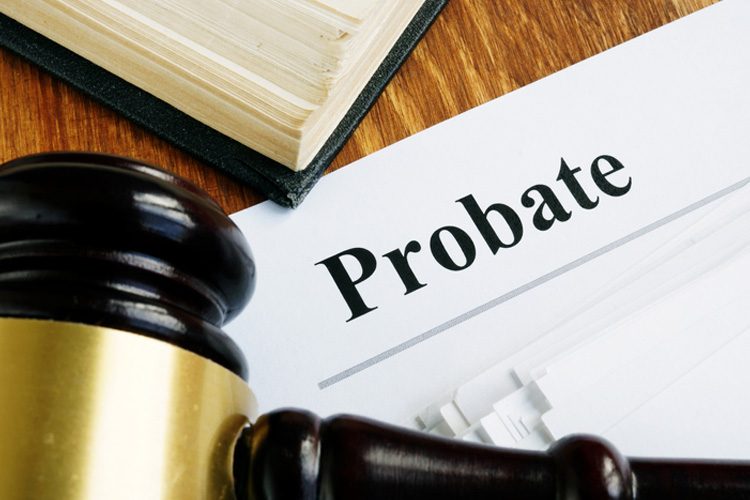What to Do When You Are Designated as the Executor of a Will?
Safety Info September 27, 2021 0 COMMENTS
Coping with the demise of a loved one is a debilitating experience, both emotionally and physically. But, if you’re named the deceased person’s executor, a large portion of your mourning period will be consumed by you having to deal with various financial and administrative drudgery.
These responsibilities can bring upon emotional stress if you are not familiar with the procedures. However, we have your back. This article will discuss the steps you need to follow to honor the deceased’s wishes and disburse their assets.
What are the Responsibilities of an Executor of a Will?
An executor of a will is usually the spouse or children of the deceased person. They are entrusted with the responsibility of keeping the assets and properties of the deceased person safe. The duties also include settling all outstanding debts, distribution of the assets, and maintaining their finances. If you have been designated as an executor of a will, you must keep certain things in mind. Keep reading to know what you need to do to implement a will successfully.
What Do You Have to Do to Execute the Will?
The jargon and procedures of handling assets after a person’s death can be complicated. So here are a few tips that you can follow to carry out the deceased person’s wishes effectively.
1. Get Copies of the Death Certificate
Whether for transfer of assets or applying for reimbursement of Life Assurances, you would need to submit certified copies of the deceased person’s death certificate. Order multiple copies of the certificate from the state medical examiner’s office to make sure you are prepared. You may have to pay some additional fees for the extra copies.
2. Get all the Important Documents In Line
Apart from the death certificate, you will need several other important documents to execute the posthumous procedures. Therefore, make sure you gather all the information, documents, and account numbers so that you are prepared.
The important documents usually include:
Loan documents
Credit card statements
Contracts and deeds
Insurance policies
Social security card
Tax return forms
Vehicle title and registration documents
3. Prepare a List of the Assets
In case of the death of an estate owner, the court might need you to personally inventory the decedent’s assets and report them within a specific time period. A proper list is also required for the disbursement of the assets.
4. Establish an Estate Account
You need to have a ready source of cash for the settlement of the estate debts and taxes. Setting up a separate bank account for the estate will save you from hassle. You can transfer the funds acquired from liquidated assets and the deceased’s bank account to the designated bank account. It will make the process of asset disbursement much simpler.
5. Disburse the Assets to the Beneficiaries
Once you have settled all the debts and paid the bills and taxes, you can now begin with distributing the assets to the beneficiaries. First, make sure you get signed receipts from the beneficiaries mentioning they have received their assets along with the date of receipt.
6. Consider Hiring an Attorney
If you are too overwhelmed with this jargon, you can consider hiring a lawyer. They will help you manage all the legalese. A Florida Probate Attorney will also help you avoid complications and mistakes.
The Bottom Line:
It is normal to feel overwhelmed if you are assigned as the will’s executor, especially if you have little or no experience. We hope this article will help you navigate the administrative and monetary procedures you have to handle to execute the deceased’s wishes successfully.
RELATED ARTICLES
Recent Posts
- Major Theft Ring Busted: Over $200,000 in Stolen Lego Sets Recovered in Eugene, Oregon
- Judge Denies Texas’ Bid to Shut Down Migrant Shelter Network in El Paso
- Single Mother in Memphis Seeks Help for Troubled Son Amid Rising Concerns
- California’s Proposition 47 Reform Sparks Intense Political Debate Over Public Safety
- U.S. Man’s Social Security Benefits Denied Over Citizenship Confusion
Categories
Our Supporters
Gold Supporters
Christopher Simon – Atlanta Truck Accident Lawyer
Skiver Law Firm – Phoenix Truck Accident Lawyer
Winer, Burritt & Scott, LLP – Los Angeles Clergy Abuse Law Firm
Michael E. Fenimore P.A. – Pensacola Car Accident Lawyer
Pillsbury & Coleman, LLP – San Mateo Long Term Disability Lawyer
The Law Office of Randall J. Wolfe, P.C. – Oregon City Personal Injury Lawyer
Davies Hothem Injury Law – Buford, GA Car Accident Attorney
Houston Federal Criminal Defense Attorney
Darrow Law Firm – Houston Federal Crime Lawyer
Kansas City Personal Injury Lawyer
Atlanta Truck Accident Attorney
Aitken *Aitken* Cohn Trial Lawyers – Santa Ana Personal Injury Attorneys
Dawson Law Group- Portland Personal Injury Attorneys
CT Mediation Center- New Haven Family Law Attorney
Little Rock Personal Injury Lawyer
Katy Car Accident Lawyer
Franklin Divorce Attorney
Palermo Law- Long Island Personal Injury Lawyer
Dan Rose – San Francisco Car Accident Attorney
Taylor Siemens – Liberty, MO Personal Injury Attorneys
Pfeifer Law Firm – Little Rock Car Accident Lawyer
Walkup, Melodia, Kelly & Schoenberger – San Jose Car Accident Attorney
Solomon, Dwiggins, Freer & Steadman – Las Vegas Business Litigation Lawyer
Roane Law – Asheboro NC Car Accident Lawyer
Dorsch Law Firm – Overland Park Estate Planning Attorney
The Tennessee Sledgehammer – Hermitage, TN Car Accident Lawyer
Cook Law Group – Gainesville, GA Car Accident Lawyer
Simon Bridgers Spires – Atlanta Personal Injury Lawyer
Injury Law Associates – Kansas City Motorcycle Accident Lawyer
Potts & Potts – Honolulu Personal Injury Attorney

